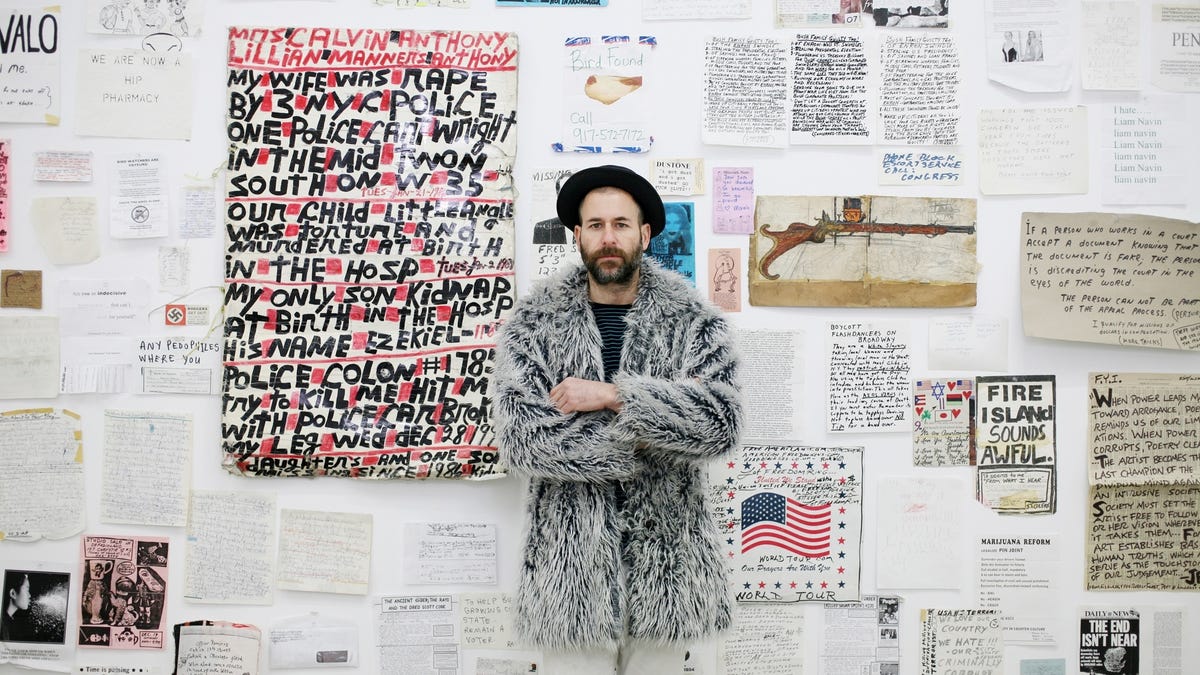Artist wants to print out entire Internet to honor Aaron Swartz
MoMA's poet laureate wants your help printing the Internet in honor of the open-access activist, who committed suicide while facing prosecution. Not everyone thinks it's the best way to go about a tribute though.

How many trees does it take to print out the entire Internet? Some environmentalists really, really don't want to find out.
They're protesting plans by artist Kenneth Goldsmith to print out the entire Internet in honor of programmer and Internet activist Aaron Swartz -- and then display the results in a giant rented art space in Mexico City.
"I didn't know him at all, but like millions of others, I was touched by his work and life," Goldsmith tells Crave of Swartz, who committed suicide early this year, at 26. Swartz had faced $4 million in fines and 50 years in prison for his alleged role in making MIT academic journal articles and Jstor, an archive of scientific journals and academic papers, public.
"Like so many people today, he was working to liberate information which should be in the public domain, made free to all," Goldsmith -- a noted poet and founder of UbuWeb, a large Web-based educational resource for avant-garde material -- told Crave via e-mail Thursday. "But he was persecuted for an act which was born out of generosity. It's a lesson for us all, one which makes us want to fight even harder for free access to vital cultural information."
The idea for the "Printing Out the Entire Internet" project is simple, Goldsmith explains on the Tumblr site for the crowdsourced project. "Print out as much of the Web as you want -- be it one sheet or a truckload -- send it to Mexico City, and we'll display it in the gallery for the duration of the exhibition, which runs from July 26 to August 30, 2013."
Participants can print out whatever they want (as long as it exists somewhere online); the gallery measures 500-square-meters, with ceilings 6 meters high.
TechHive estimates that printing the entire Internet would amount to 39 billion-plus boxes of standard standard 8.5x11-inch paper. The prospect of such a massive printing project has, not surprisingly, ruffled some green feathers.
Environmental concerns
"A sustainable responsible approach to life requires that humans adopt a conservative approach to resource usage," reads a petition titled "Please Don't Print the Internet," on Change.org. "While it is appreciated that Mr. Goldsmith plans to recycle the paper used in his art exhibit, reduction of usage is more important than post-usage recycling." So far nearly 200 people have signed it.
In addition to paper, the petition, started by Justin Swanhart of Mountain View, Calif., cites harmful chemicals used in the production of paper, as well as plastic and ink waste from toner cartridges, ink cartridges, and other non-paper related supplies that may pollute the landfill.
"A notable sentiment for the departed Mr. Swartz, but certainly the open-ness of the Internet can be symbolized without the pointless use of resources," writes one person who signed the petition. Writes another: "I'm a big fan of unusual art, especially art which uses modern themes such as computing and the Internet, but the amount of waste created is too great for the cultural benefit to outweigh it."
Goldsmith -- the Museum of Modern Art's first poet laureate -- is well aware of the opposition to his idea but notes that "all art is spectacle, all spectacle is material, and all material must come from somewhere." He cites other art projects -- "the spectacle of the Venice Biennale with its global carbon footprint, hideous yachts, and private jets; or the $35 million Jeff Koons strip-mined aluminum sculptures, created by one person for one person of the 1 percent" -- and notes that his crowdsourced printing project, with its "all-inclusive democratic attitude" and recyclable ending "looks pretty good by comparison."
The project started when LABOR, a gallery in Mexico City, asked Goldsmith to curate a show in Swartz's memory. He began by downloading the 33-gig torrent of the supposed files Swartz took from Jstor. "It never was clear whether this was his cache or a copycat torrent," said Goldsmith, who teaches poetics and poetic practice at the University of Pennsylvania, "and one folder alone (a fraction of the torrent) weighed in at over 10,000 pages of material."
The project is only a week in, but Goldsmith has heard rumors that one group in Mexico plans to print out the entire Jstor archive as a way of paying homage to Swartz, who in March was posthumously honored with a freedom-of-information award for fighting for open-access rights to Internet documents. Can the world actually print out the entire Internet? And will it? Goldsmith, who calls the Internet "the greatest poem ever written," doesn't know. And in the end, he doesn't even seem to care.
"In the tradition of conceptual art," he says, "the discourse surrounding the show is, in fact, the real show."

